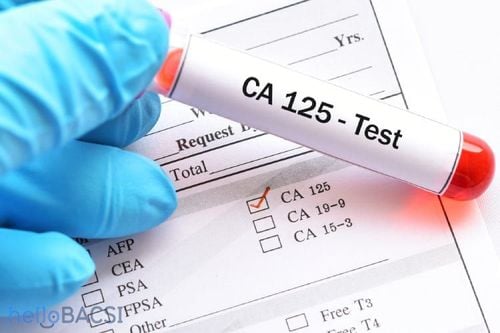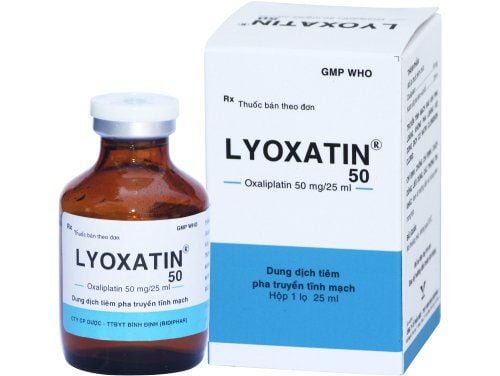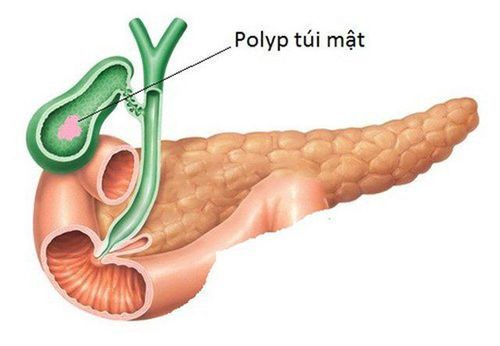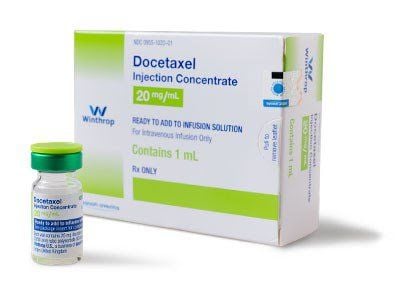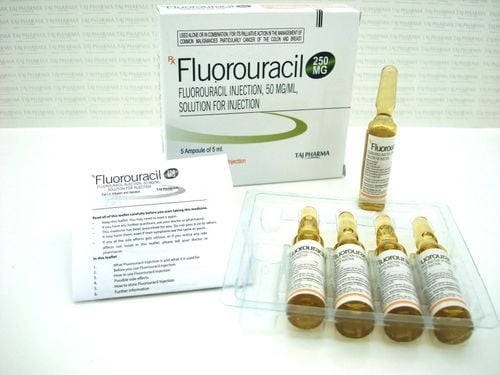This is an automatically translated article.
Gastrointestinal cancer accounts for the largest proportion of cancers. The disease has an initial onset with non-specific symptoms, easily confused with common gastrointestinal diseases, making patients subjective and by the time the disease is discovered, it is already at a late stage. Therefore, screening and early detection will help increase the effectiveness of treatment and have more options in the treatment of early-stage gastrointestinal cancer.
1. The role of early gastrointestinal cancer detection
Patients with early stage gastrointestinal cancer often have no specific symptoms, the early manifestations of the disease are often similar to common gastrointestinal diseases, making the patient subjective and until detected. The disease is already in a late stage. In addition, detecting cancer at an early stage or pre-cancerous stage as early as possible will help doctors have timely interventions and high treatment efficiency. Therefore, it is extremely important to perform a comprehensive physical examination and annual screening to help detect precancerous lesions and early cancers. For example, for patients with colon cancer, performing regular cancer screening will help detect and remove colon polyps before the risk of progression to cancer. In addition, periodic cancer screening also helps patients detect cancer at an early stage, when the tumor is small, has not invaded and metastasized, helping to achieve the highest treatment efficiency and reduce the risk of cancer. dead.
The organs on the digestive tract are at risk of being invaded by cancer cells, the most common of which are stomach cancer and colon cancer.
2. Early stage stomach cancer
Early gastric cancer is defined when the invasive level of cancer cells has not penetrated the submucosa of the stomach and no lymph node metastasis has appeared. Cancer at this stage has a better prognosis than advanced stomach cancer. Along with the development of medicine, the early detection of stomach cancer relies on imaging techniques such as magnifying endoscopy, endoscopy with narrow light band, allowing early detection of lesions in the stomach. So what are the symptoms of early gastric cancer? Usually early gastric cancer lesions are small in size from a few millimeters and not more than 5-7cm. The early stage lesions usually do not affect or have little effect on the digestive function of the stomach, causing uncomfortable symptoms and abdominal pain for the patient. Some signs of early gastric cancer such as abdominal pain, weight loss, loss of appetite, vomiting blood, bloating... These are non-specific symptoms and are easily confused with digestive diseases. usually, common, normal. Most people with stomach cancer find out about 6-12 months later than the early stage of the disease, so it is only through periodic cancer screening that can help patients detect stomach cancer. early stage thickness.
One of the most effective methods to help diagnose early gastric cancer is gastroscopy combined with systemic biopsy or biopsy of suspected lesions. Some endoscopic methods used in diagnosing early gastric cancer are as follows:
Normal light endoscopy: Using this method, it is often more difficult to detect small lesions, so it requires a doctor. The doctor must examine the entire stomach carefully, meticulously, and biopsies suspect sites. Lesions on endoscopy can be ulcerated, central core, convex polyp... Endoscopy 1/4: With this method, the endoscope requires the endoscope to observe and take pictures according to the direction. Method 1/4 is based on the principle of dividing the endoscopic microfield into 4 and each time taking a picture, it is necessary to focus on capturing and observing the microfield under investigation. Other endoscopic methods: Narrow band endoscopy, fluoroscopy, staining endoscopy. These methods help to complement conventional endoscopy, increasing diagnostic accuracy. However, the diagnosis of early gastric cancer is still based on biopsy results as histopathology. During endoscopic detection of ulcerative lesions, biopsies were taken for testing. The greater the location and number, the higher the probability of identifying a cancerous lesion.
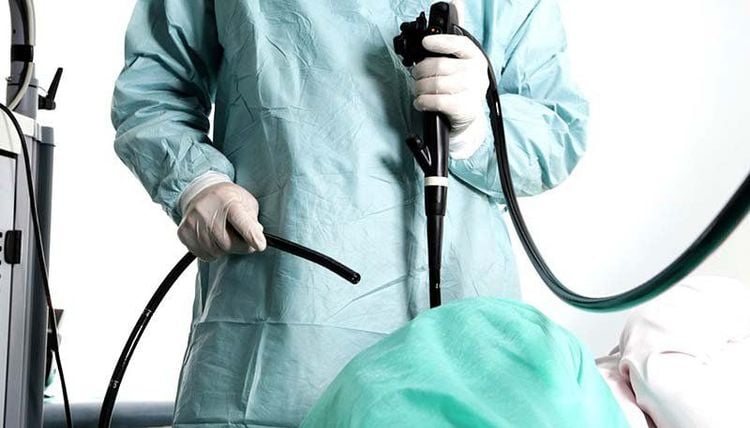
Phát hiên ung thư tiêu hóa giai đoạn sớm thông qua nội soi tiêu hóa
3. Colon cancer early stage
Colon cancer has the 4th highest cancer mortality rate in the world after liver cancer, lung cancer and stomach cancer. However, if cancer is detected at an early stage, the cure rate is up to 90%.
Early stage colon cancer often has symptoms of dull pain that can appear at any time, the pain may be accompanied by a feeling of heaviness in the abdomen. Accompanied by symptoms of digestive disorders such as constipation appear after the pain and the use of the drug has only a temporary effect. In many cases, patients often have unexplained diarrhea, the number of bowel movements can be 4-5 times per day with pus and blood mixed, so patients are often confused with acute diarrhea. . So, in the case of an abnormal digestive system with disorders such as episodes of loose bowel movements or constipation or loose stools alternating with constipation that have not been encountered before, along with fatigue, Weight loss, bluish skin or associated with bowel obstruction syndrome should suggest colon cancer and perform tests to be diagnosed and treated.
Results of studies show that colon cancer in patients with incidental detection and surgical intervention has a 5-year survival rate of 82%, in contrast to patients with symptoms. For newly diagnosed cancer and treated with surgery, the rate is only about 45%. There are many methods used in the treatment of colon cancer such as surgery, chemotherapy, radiation therapy... in which surgery is considered the main treatment method today.
Most colon cancers develop from precancerous polyps. Therefore, performing colon cancer screening helps patients detect and remove precancerous polyps or early cancer early. Some methods to help diagnose and treat early colon cancer can be mentioned as follows:
Colonoscopy: This method helps the doctor see the entire lining of the colon. The patient should be rinsed clean and not eating for at least 6 hours before the procedure. In case of abnormal lesions, biopsy and histological examination will be performed. This method allows to detect all lesions in the colon including: small polyps, large polyps, inflammation, ulcers, cancer... CT colonography: Non-invasive method helps doctors detect masses large polyps or tumors in the colon. Fecal immunohistochemistry (FIT) helps detect occult blood in the stool. Colonoscopy - iliac colon: Endoscopy with flexible tube or computed tomography in case the patient's health does not allow colonoscopy of the entire colon.
4. Preventing the risk of gastrointestinal cancer from the lifestyle
To reduce the risk of digestive cancer diseases, you should establish a regular and reasonable lifestyle as follows:
Follow a scientific and healthy diet such as limiting acidic foods , hot, spicy affect the digestive tract, reduce the high-fat diet, increase the addition of green vegetables... Limit the intake of stimulant drinks such as alcohol, beer, coffee... Exercise regularly at least 30 minutes a day. You need to go to the hospital for examination and diagnosis when you have symptoms such as bloating, loss of appetite, unexplained weight loss, loose stools, bloody stools, frequent constipation or diarrhea...

Phòng tránh tình trạng ung thư tiêu hóa cần tránh một số loại thức ăn
Age over 45 In the family, there is a history of gastrointestinal diseases such as colorectal polyps, colon cancer, stomach cancer. thick ... Frequent constipation, bloody stools for unknown reasons. People with unhealthy lifestyles such as drinking a lot of alcohol, often smoking. Having diseases related to damage to the digestive tract such as Crohn's disease, ulcerative colitis, atrophic gastritis of the gastric mucosa... For digestive cancer in particular and other cancers in general, to have a prognosis Well, treating the disease thoroughly at an early stage is the most important factor. Therefore, gastrointestinal cancer screening is a scientific and effective measure for early detection of gastrointestinal cancer (esophageal cancer, stomach cancer, colon cancer) and giving treatment regimens. best treatment.
Please dial HOTLINE for more information or register for an appointment HERE. Download MyVinmec app to make appointments faster and to manage your bookings easily.




